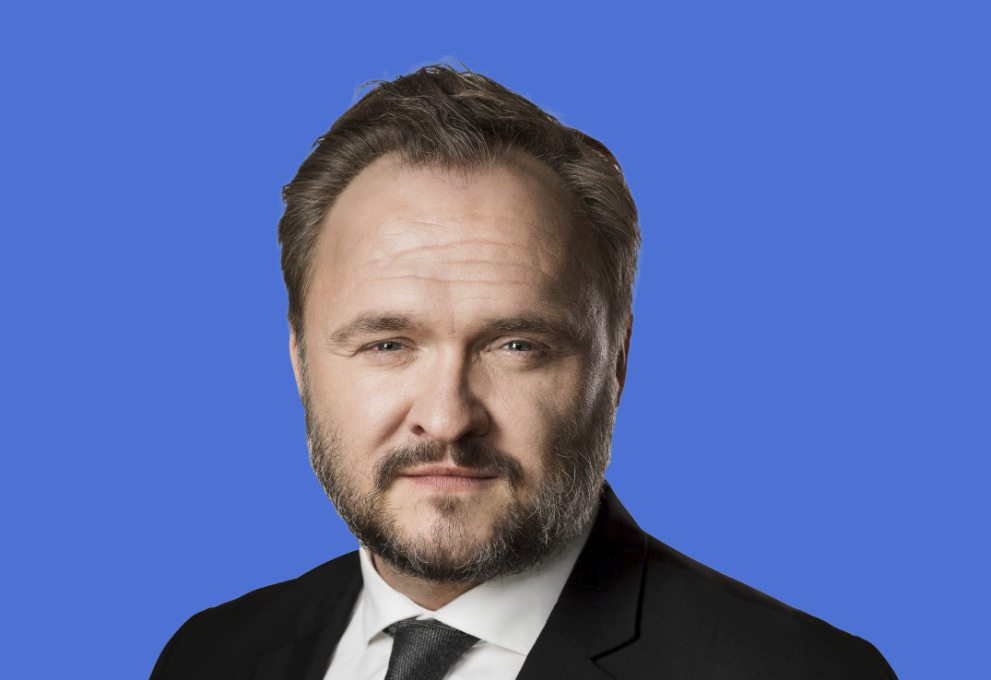The European Commissioner for Energy and Housing is very cautious about the causes and responsibility for the major blackout that Spain suffered last Monday. Dan Jorgensen (Odense, 1975) points out that the process that ENTSO-E, the European Network of Transmission System Operators for Electricity, has already begun will be key.
They "will investigate the causes of the blackout and provide recommendations in a final report." He maintains that, at the moment, there is no reason to blame renewables, and in the interview given to EL MUNDO, the social democrat official congratulates both the Government and Red Eléctrica for "the quick recovery and restoration of service."
How do you evaluate the blackout that Spain experienced last Monday and the crisis management?
Despite the seriousness of the incident, the Spanish and Portuguese authorities, as well as the transmission system operators, deserve praise for the quick recovery and restoration of service. The civility and calm shown by the citizens were equally impressive. Now that the electrical supply has been fully restored, the priority is to determine the underlying causes of the blackout and investigate what actually happened. This is key to ensuring that improvement measures can be taken based on objective data. The situation we witnessed needs to be investigated, but regardless of what is discovered, it underscores the need for greater integration of our energy systems in Europe.
What will the European Commission do in response to this crisis? What will be your role as Energy Commissioner?
The Commission fully supports the citizens and governments of Spain and Portugal in their willingness to clarify what happened and prevent similar incidents in the future. An independent investigation into the causes has been launched, and necessary measures will be implemented to prevent similar incidents. However, it is still too early to identify what those measures will be. In this regard, I welcome ENTSO-E's announcement of the creation of a panel of expert transmission system operators to investigate the causes of the blackout and provide recommendations in a final report.
In Spain, Red Eléctrica is being directly pointed out. How do you specifically assess the performance of the Spanish system operator?
Now that the electrical supply has been restored in Spain and Portugal, the priority is to identify what happened so that necessary improvement measures can be taken based on objective data.
The lack of renewable energy generation is also mentioned as one of the possible causes. Pending the results of the investigations, do you think this is possible?
We do not yet know the causes of the blackout, and it is premature to draw conclusions. As far as we know, there was nothing unusual in the energy sources supplying electricity to the system, so it cannot be attributed to a specific energy source, such as renewables.
The blackout has reignited the debate on nuclear energy in Spain. Some argue that this demonstrates that the country cannot do without this energy source. Although it is a national issue, do you have any opinion on this?
Nuclear energy is part of the EU's energy mix and will continue to be so. However, it is fully up to the Member States to decide whether or not to use this energy source. More renewable and clean energies will support electrification and the EU's commitment to climate neutrality, as well as ensuring our energy independence.
Is it necessary to increase investment in energy to ensure supply security?
As we outlined in our Action Plan for Affordable Energy, completing the Clean Energy-driven Energy Union is the most sensible way to improve our energy security, reduce energy costs, and enhance our competitiveness and decarbonization efforts. I welcome the EU leaders' call to complete the Energy Union by 2030. This requires massive investments in missing interconnections, network modernization, flexibility, digitalization, and artificial intelligence, as well as a consistent regulatory and governance framework. More than 660 billion euros are needed annually from next year until 2030, and 680 billion euros per year between 2028 and 2034. The EU electricity market already saves Europeans around 34 billion euros annually, but this figure could increase to 43 billion euros annually by 2030 with further market integration. Better market integration, renewable energy generation, and flexibility could result in wholesale electricity prices being on average 40% lower in the EU. So, it is clear that these investments are worthwhile.
